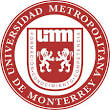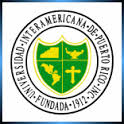What do they do?
Record drugs delivered to the pharmacy, store incoming merchandise, and inform the supervisor of stock needs. May operate cash register and accept prescriptions for filling.
Also known as:
Certified Pharmacist Assistant, Drug Purchaser, Front Counter Clerk, Pharmacist Assistant, Pharmacy Aide, Pharmacy Ancillary, Pharmacy Assistant, Pharmacy Cashier, Pharmacy Clerk
-
-0.7%
Change
Ranks #48 in job growth rate250Job Openings
Ranks #13 in net job growth
Looking for colleges that offer a specific major? Use the College Match Tool to find your best-matched schools and discover your estimated Net Price!
- High school diploma equivalent (32%)
- Some college, no degree (28%)
- Bachelor's degree (16%)
- Associate's degree (13%)
- Doctorate or Professional Degree (5%)
- Less than high school diploma (4%)
- Master's degree (2%)
People in this career often have these skills:
- Active Listening - Giving full attention to what other people are saying, taking time to understand the points being made, asking questions as appropriate, and not interrupting at inappropriate times.
- Speaking - Talking to others to convey information effectively.
- Service Orientation - Actively looking for ways to help people.
People in this career often know a lot about:
- Customer and Personal Service - Knowledge of principles and processes for providing customer and personal services. This includes customer needs assessment, meeting quality standards for services, and evaluation of customer satisfaction.
- English Language - Knowledge of the structure and content of the English language including the meaning and spelling of words, rules of composition, and grammar.
People in this career often have talent in:
- Oral Comprehension - The ability to listen to and understand information and ideas presented through spoken words and sentences.
- Oral Expression - The ability to communicate information and ideas in speaking so others will understand.
- Speech Clarity - The ability to speak clearly so others can understand you.
- Near Vision - The ability to see details at close range (within a few feet of the observer).
- Speech Recognition - The ability to identify and understand the speech of another person.
People in this career often do these activities:
- Perform clerical work in medical settings.
- Control prescription refills or authorizations.
- Explain technical medical information to patients.
- Process medical billing information.
- Inventory medical supplies or equipment.
- Stock medical or patient care supplies.
- Maintain medical records.
- Transport biological or other medical materials.
- Clean medical equipment.
- Maintain medical equipment or instruments.
- Operate medical equipment.
This page includes data from:

 Occupation statistics: USDOL U.S. Bureau of Labor Statistics Occupational Employment Statistics
Occupation statistics: USDOL U.S. Bureau of Labor Statistics Occupational Employment Statistics
 Videos: CareerOneStop, USDOL/ETA and the Minnesota Department of Employment & Economic Development
Videos: CareerOneStop, USDOL/ETA and the Minnesota Department of Employment & Economic Development











